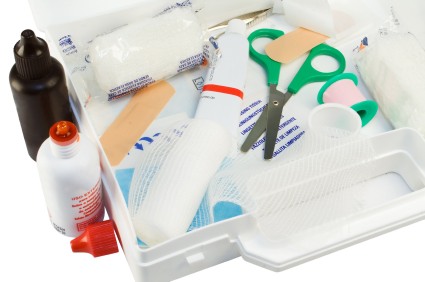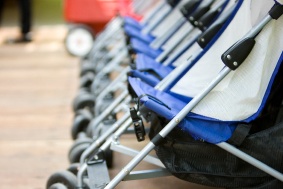Pregnancy is one of the most exciting times in a woman’s life. Yet, being pregnant is a worryfilled time too. To be certain you’ve done everything right and to make sure that your baby gets a healthy start, it is imperative to know about what you should eat and how much weight you should gain.
Nutrients are divided between you and your growing baby. Sustenance for your child comes from nutrients stored in your bones and tissues. In the past, it was believed that a developing fetus took all the nourishment it needed from the mother, regardless of the her diet. This myth maintained that if a woman’s diet was deficient in something, it did not matter because the baby could simply siphon the nutrient from the reserves in the mother’s bones and teeth. Now experts believe that it is the growing baby who is affected most if the woman’s diet lacks adequate nutrients.
Only a well-nourished woman is in a position to optimally nourish a fetus. For optimal foetal growth, diet during pregnancy must meet the needs of both the mother and the fetus.
Weight Gain
A woman should approximately put on 10 to 12 kilograms during her pregnancy. Normally the weight gain goes like this:
0 to 14 weeks – no gain
14 to 20 weeks – 3 kilograms
20 to 30 weeks – 5 kilograms
30 to 36 weeks – 3 kilograms
36 to 40 weeks – no gain
Diet Chart
These proportions are on a daily basis:
- Bread, cereal, rice, and pasta: medium to large helpings
- Vegetables: large helpings
- Fruits: about two to four types (seasonal)
- Milk, yoghurt and cheese: two to three cups
- Meat: medium helpings
- Fats, oils, and sweets: fats and oils, 2 tsp/sweets: 1 ounce)
Calorie Requirement
No two women have the same need for calories. That is because caloric need during pregnancy is based on an individual’s physical activity level, current weight, muscle and fat mass, metabolic rate, and the stage of pregnancy. That makes it impossible to state with certainty a specific number of additional calories needed by individual pregnant women. The best way to judge the adequacy of caloric intake is by assessing weight gain.

Eating Right [Illustration by Shiju George]
Protein is an important ingredient of every diet chart, more so during pregnancy. Some vegetarian sources of protein are nuts and seeds, milk and other dairy products, pulses, soya products, cauliflower, broccoli, garlic, spinach, sweet corn and oats. Animal protein contains all the essential amino acids in amounts proportional to human needs. This means if you eat two four-ounce servings of animal protein, you’re almost assured of meeting your minimum needs. Good sources of animal protein include eggs, dairy products, poultry, fish and lean red meats.
Other Key Nutrients
Just as protein is an important nutrient, so are carbohydrates and fat. It is important to consume all the nutrients required during pregnancy. Besides being calorie sources, carbohydrates and fat are also essential components of the prenatal diet. Fresh fruits and vegetables and whole grain breads and cereals provide calories from carbohydrate and many essential vitamins and minerals. They are also the best sources of fibre in the diet. The less processed or refined these foods are, the higher the fibre content which is helpful for managing constipation, common during the later stages of pregnancy. It also provides a sense of satiation that discourages overeating. Fat in the diet provides substances that are essential for cells to form and keep their shape. They are also the only source of Vitamin E in the diet whose purpose is also to protect growing cells.
Recommended Daily Allowances
Protein: 65 g
Calories: normal + 300 cal
Vitamin A: 600 ug
Vitamin D: 400 IU
Vitamin C: 40 mg
Thiamin: 1.1-1.4 mg
Riboflavin: 1.3-1.7 mg
Folate: 400 mcg
Vitamin B12: 1 ug
Calcium: 1,000 mg
Iron: 38 mg
Zinc: 15.5 mg
Folate: Need for extra folate (foliage) continues throughout pregnancy and many women do not consume enough of it. Consumption of an adequate amount of folate (400mcg or 0.4 mg per day) helps prevent the development of certain types of anaemia and promotes the growth of foetal tissues and organs. Good sources include broccoli, oranges, bananas, milk, and dried beans. Refined grain products such as bread, white rice, crackers, and pasta are fortified with folic acid.
Vitamin D: Women who consume three or more cups daily of milk or soy milk fortified with vitamin D, or receive sufficient exposure to sunshine (one to two hours per week in the summer) are likely receive sufficient vitamin D for pregnancy. Vitamin D supports foetal growth, the calcification of bone (or the addition of calcium to bone), and teeth and enamel formation.
Iron: Women have a high need for iron during pregnancy because it is used to form haemoglobin in red blood cells and for foetal growth. Most women consume less than half that amount. It is common for women to conceive without sufficient stores to cover the iron cost of pregnancy. Consequently, iron supplements are recommended for all pregnant women. Liver, turnip, greens, asparagus, dried beans, spinach and fortified cereals are good sources of iron.
Zinc: Zinc and iron are found in many of the same foods (meats, fortified breakfast cereals and dried beans). Adequate zinc levels in pregnancy help women resist infectious diseases, may help prevent abnormally long labour, and support foetal growth.
Calcium: Calcium is a key nutrient for pregnant women. A woman’s intake of calcium is low, calcium from the mother’s bones will be used to meet foetal needs for calcium, and so it is very important to meet its RDA. Good sources besides dairy products are til, figs, beans, broccoli, almonds, salmon fish, orange juice etc.
Vitamin C: Good sources are oranges, orange juice, cantaloupe, grapefruit, grapefruit juice, green pepper, cauliflower, broccoli, and Brussels sprouts. There are other advantages to consuming vitamin C-rich foods. These foods tend to contain other beneficial substances that appear to reduce the risk of infection and certain diseases. Absorption of iron from plant foods is also increased substantially if foods high in vitamin C are consumed at the same meal.
A word of caution: Don’t take supplements without consulting your doctor. Too much vitamin A, B6, C, D, E, or K, or too much zinc, iron, or selenium, can be harmful during pregnancy. Make sure to take iron at bedtime or between meals with water or citrus juice-never with milk, because calcium makes it harder for the body to absorb iron.
Fluids
Most women need about eight to ten cups of fluid (or 64 to 80 ounces) daily during pregnancy.
High Fibre Foods
Constipation is a common problem in pregnancy that can often be prevented by high-fibre diets. High-fibre foods are generally good sources of a variety of nutrients, so they are good to eat even if constipation isn’t a problem. How much fibre is enough to prevent constipation? Usually 25 grams a day along with plenty of water is sufficient. Where do you get fiber? Choose the sources you like and can fit into your diet.
Salt
Contrary to popular belief women should not restrict salt or sodium intake during pregnancy. Only if there is a medical aliment such as hypertension then you may ned to consult with your gynaecologist about the daily requirement.
Alcohol and Smoking
It is recommended that pregnant women refrain from drinking alcohol-containing beverages and smoking as these may harm the fetus.











i like to know much about pregnancy diet
Tell about to eat desi egg. It meat be Healy for fregnent lady or not please
It helps a lot